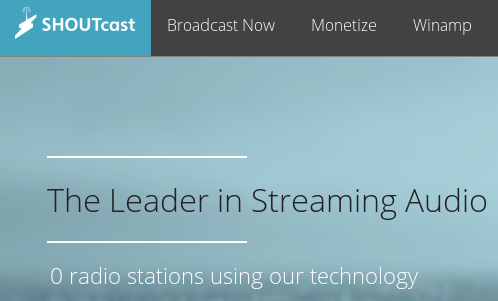Music discovery is one of those activities with which a huge network with tons of information may be helpful. Unfortunately, the one we’ve got here mostly sucks, and about the best we get is the same radios as before, just using new technologies. “But wait!” you may object. “We have youtube, and last.fm, and myspace”. Well, yeah, but they are inefficient, with no way to improve them, and belong to the world of ads and misery. We’re not heading there.
Then there are compilation albums, which may work for discovery, but the concept of an album is an artifact from the previous century, and particularly from the pre-internet part of it – when they just had to store a collection of songs using a single physical object, and to transfer the songs with it. They had radios and phones even then, but the quality of transmitted sound was far from that of original records.
Actually there is a variety of ways to discover music, but listening to internet radios is one of them, so let’s finally get to that.
Finding radios
A naive internet user may try to find a decent radio by typing “internet radio” into a web search engine, but they are bound to discover loads of unusable—and often paywalled—crap that way. Individual stations are made invisible by huge services, and the huge services require monetization of their own.
The solution is similar to that with software: one has to dive into the geekier depths of internet to find some enthusiasts who are trying to provide bullshit-free services. Those tend to hang around relevant technologies, mostly software in this case. Let’s see: FSF’s PlayOgg! leads us to xiph.org, which provides a streaming directory: a list of active streams with basic search and direct links to both playlists and the stations’ websites. Done.
How it works
The streams we saw announce themselves using “Yellow Pages”. In case if you have ever wondered how media streaming works, it is as disappointing as most of the other human-made stuff. In most cases, it uses the same protocol that is used (and intended) to serve web pages, to serve data in the same formats as used for locally stored files. There’s just a bit of math involved in sound compression, but no magic around it otherwise. There is some patents-related mess when it comes to codecs though, and inconsistencies in software support, of course. For those interested in technical bits, xiph.org provides nice entry-level explanations and documentation.
Regarding the overall operation, one can go through “about” sections of the listed radio stations. Some are regular radio stations with in-air ads, some accept donations and/or stick to indie bands that are happy to get promoted for free, and some are not exactly law-abiding. What leads us to the legal aspect of their working: music licensing is a pain, and an expensive one (the linked page is composed by the guy who claims that JavaScript makes web browsing less painful, but probably he is not always wrong) – even when it is for non-commercial playback.
Basically, people keep succeeding in complicating essentially simple things.

